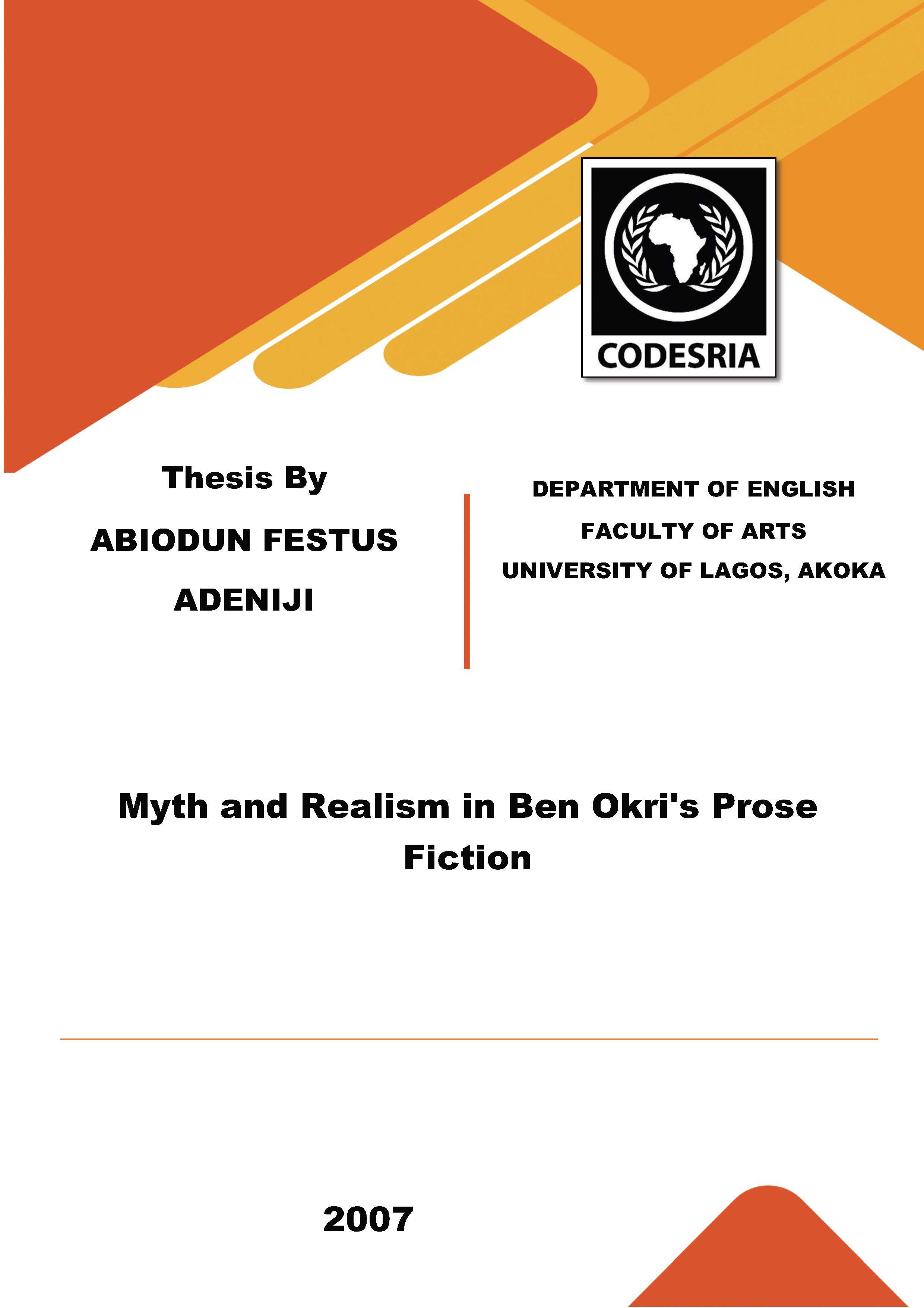Myth and Realism in Ben Okri's Prose Fiction
Keywords:
Novels, languages, writing, aestheticsSynopsis
This study is an investigation of the aesthetic effects and socio-political import
of Okri's consistent use of myth and realism as depicted in the selected novels,
namely: Fîowers and Shadows, The Landscapes Wîthin, Dangerous Love /re-writing
of The Landscapes Within), The Famished Road, Sangs of Enchantment, Stars of the
New Curfew and Astonishing the Gods.
The study reveals that even though the two concepts would ordinarily not share
a common terminus, they have been forced to co-habit the same aesthetic space in
Okri's prose fiction and serve as the burden bearers of his unique aesthetic vision and
thematic préoccupations. The analysis embodied in this study has been done through
the agency of Philip Wheelwrighfs semantic theory of myth and lan Watt's theory of
realism. These théories have been used to evaluate the contributions of myth and
realism to Okri's prose fiction at the level of theme, characterisation and setting. The
two théories also facilitated the analysis of the convergences and divergences between
Okri and other writers in the bid to foreground the unique insights which the interface
of myth and realism makes available to contemporary writers about art and the society.
The research fmdings include the fact that Okri deliberately fuses myth and realism in
his Works in his bid to satirise the debilitating or deranging effects which the policies
of a visionless and self-serving leadership often foist on the people's psyché. Another
finding is that Okri's aesthetic choice is also a search for a Utopia, a society devoid of
the malaise of the présent social organism. This is what informs his recourse to the
abiku symbolism and other myths in works which bear undeniable realist temper.
Downloads






